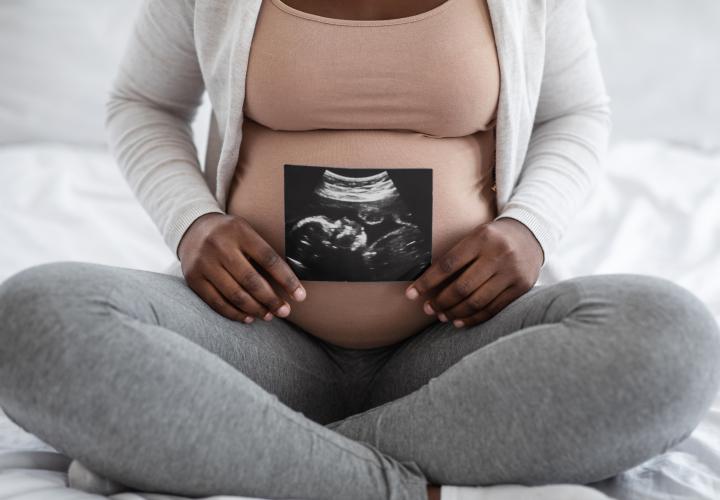Black Maternal Health Week is observed annually from April 11th to 17th, highlighting significant disparities in maternal health outcomes among Black women in the United States. Established by the Black Mamas Matter Alliance (BMMA), this initiative aims to address systemic challenges faced by Black families during pregnancy and childbirth. The week serves to raise awareness about structural issues within healthcare systems and social factors that impact access to essential resources for Black mothers' well-being. By amplifying the voices of Black mothers and advocating for culturally competent healthcare, the event fosters important discussions and legislative reforms to tackle disparities in maternal mortality and morbidity. It underscores the importance of collective action to ensure quality care for all mothers, irrespective of race or socioeconomic status. The ultimate goal is to dismantle barriers to equitable maternal care and create a future where every Black mother can experience childbirth with support and confidence.
Scope of the Problem: Black Maternal Mortality
According to the Centers for Disease Control and Prevention (CDC), approximately 50,000 women in the United States experience pregnancy complications annually, with Black women being three times more likely to die from pregnancy-related issues compared to white women. In 2020, Black women had a maternal mortality rate of 55.3 per 100,000 live births, exceeding the national average maternal mortality rate of 23.8 per 100,000 births. Medical conditions such as hypertension, cardiovascular disease, and high blood pressure can contribute to racial disparities in maternal health. Moreover, historical racism within the healthcare system persists, affecting Black women's experiences. Social factors like poverty can also impact access to and affordability of healthcare, exacerbating biases against Black women. Studies have indicated racial bias in pain assessment and treatment among some medical providers, potentially leading to less effective treatment for Black patients. Additionally, Black mothers have reported instances of discrimination and mistreatment from medical providers due to inadequate resources and support in their environments. Challenges such as transportation barriers and living in pedestrian-unfriendly areas can further hinder access to medical care for Black women.
The influence of structural racism on healthcare and the experiences of Black women is widely acknowledged. Various solutions exist to strengthen the healthcare workforce and enhance the experiences of Black women seeking healthcare.
1. Diversifying the workforce: Currently, Black people make up approximately 13% of the population, but only 5% of physicians, with Black women representing 2% of all physicians. Efforts should be made to specifically recruit and encourage Black individuals, particularly Black women, to pursue careers in healthcare. This includes investing in community initiatives to introduce young people to various healthcare opportunities. Such efforts can contribute to the important goal of providing racially concordant care to patients. Additionally, it is critical to use standardized objective criteria for staff recruitment, establish accessible channels for reporting discrimination, and continuously assess employee satisfaction and perceptions of inclusion and fairness within the medical system to address existing inequities.
2. Address implicit bias in healthcare through targeted educational campaigns and the use of specific tools and resources that work to improve health equity. Multiple tools and guides are available through the CDC and elsewhere that work to address unconscious bias and build skills such as cultural humility and person-centered care. Implicit bias can also be minimized through standardized clinical pathways that take the judgment away from healthcare providers and are more in line with best practice recommendations.
3. Include health disparities and social determinants of health in all medical school curricula. Medical schools should engage students in identifying their own biases and recognize how these disparities disproportionately impact patients and the health system. This can be done effectively by partnering with community health organizations in training initiatives that specifically raise awareness about racial disparities in maternal health outcomes.
4. Address the impact of environmental exposures on maternal and child health through specific remediation campaigns. Safe housing and environmental justice efforts can work to address lead and pollution exposure, as Black children are more likely to be exposed to lead, and there is increased exposure to pesticides in urban and low-income public housing. Exposure to lead and pesticides has serious detrimental impacts on maternal and child health.
5. Expand access to healthcare care for Black women through direct policy-making. Given that Black women are three times more likely to die from a pregnancy-related cause than white women, it is imperative that policies expand access, including increasing access to doulas and labor and delivery classes. We also must work to overcome barriers including low reimbursement for Medicaid clients and overly complicated paperwork, work to dramatically expand access to behavioral health services, and extend Medicaid postpartum coverage to at least one year.
Black Maternal Health Week brings attention to the disparities faced by Black women in maternal health. Efforts to diversify the healthcare workforce, address bias, include health disparities in education, remediate environmental factors, and expand healthcare access are crucial steps toward ensuring equitable care for all mothers.
